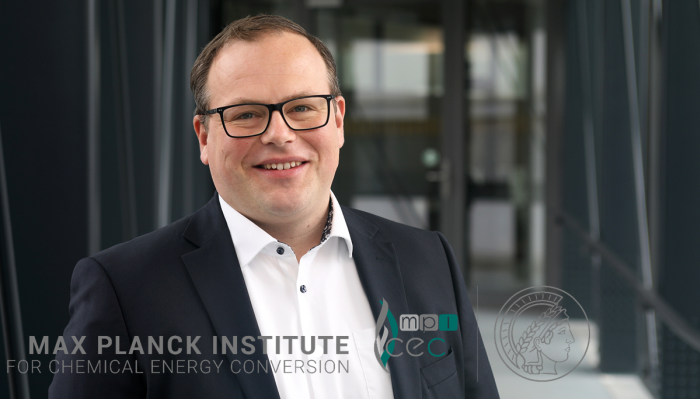Hi, I am Andreas. I studied chemistry at the Tu Dortmund University and the University of Queensland. After my PhD in chemical engineering and a master in business in Dortmund I spend some time as consultant. Then I became an independent group leader where I worked in the field of industrial chemistry with chemists and engineers. Since 2018, I am leading my research group “Multiphase Catalysis” at the Max Planck Institute for Chemical Energy Conversation (MPI CEC) in Mülheim a.d.Ruhr. Additionally, I teach various courses at RWTH Aachen University and TU Dortmund University.
At E-TANDEM, my team is working in Work Package 2 to develop and optimize laboratory-scale multifunctional catalysts for the production of e-fuels, and additionally in Work Package 4 to study the catalysts and reactions previously studied in the laboratory on a larger scale. In WP 4 I also operate as the Work Package leader.
What was your original motivation to become a researcher?
My motivation to study chemistry was to know where everyday things from polymers to fuels come from and how they are made. This is why I got interested in chemistry and chemical engineering.
What is your (main) research area today?
My group in the Max Planck Institute for Chemical Energy Conversion (MPI CEC) is focusing on the development of new synthesis strategies for chemical intermediates, fuels and energy carriers in different scales. In the group, chemical engineers work closely together with chemists to develop catalyst systems that are recyclable towards the application of these catalysts in continuously operated miniplants. Understanding catalysts, the influence of phases on the conversion, developing intensified reactors and running long-term experiments are key to foster the energy transition from fossil to renewable energy.
What is the main objective of your team in E-TANDEM?
Our goal is to develop together with our partners a unique and capable catalyst system that can convert electrolysis Syngas into a fuel mixture in one reactor in a tandem reaction. Furthermore, my team is responsible for scaling up the reaction from lab scale to miniplant scale. For this purpose, we are building a miniplant setup that allows a continuous experimental procedure, the recycling of the catalyst and the demonstration of long-term stability.
What expertise and facilities does your team have to meet those objectives?
The close collaboration between chemical engineers and chemists is key to develop such an integrated process. In addition, at MPI CEC we have very well-trained technicians in the workshops for all the metalwork, electronics and programming needed to implement a functioning setup. In our experimental hall, all facilities are ideal to buildup said miniplants and perform long-term experiments.
Which aspects of your research at E-TANDEM do you believe are the most innovative and what unique opportunities does E-TANDEM offer to you and/or your organisation?
In E-TANDEM we are able to perform research on the highest level. The feedback from all partners allow us to develop a process which includes the view on the fuel, the economics, the catalysts etc. To optimize in this multifactional area is a great task!
How do you see the future use of the E-TANDEM results and the impact of the E-TANDEM project in our daily lives?
E-TANDEM has the potential to produce fuels from CO2! This will be a boost for e-fuels since only two stages are used to synthesize it very efficiently. The use of clean fuels in ships and heavy-duty transport will reduce the CO2 food print from a lot of operations drastically and therefore will play a big role in the next years.

